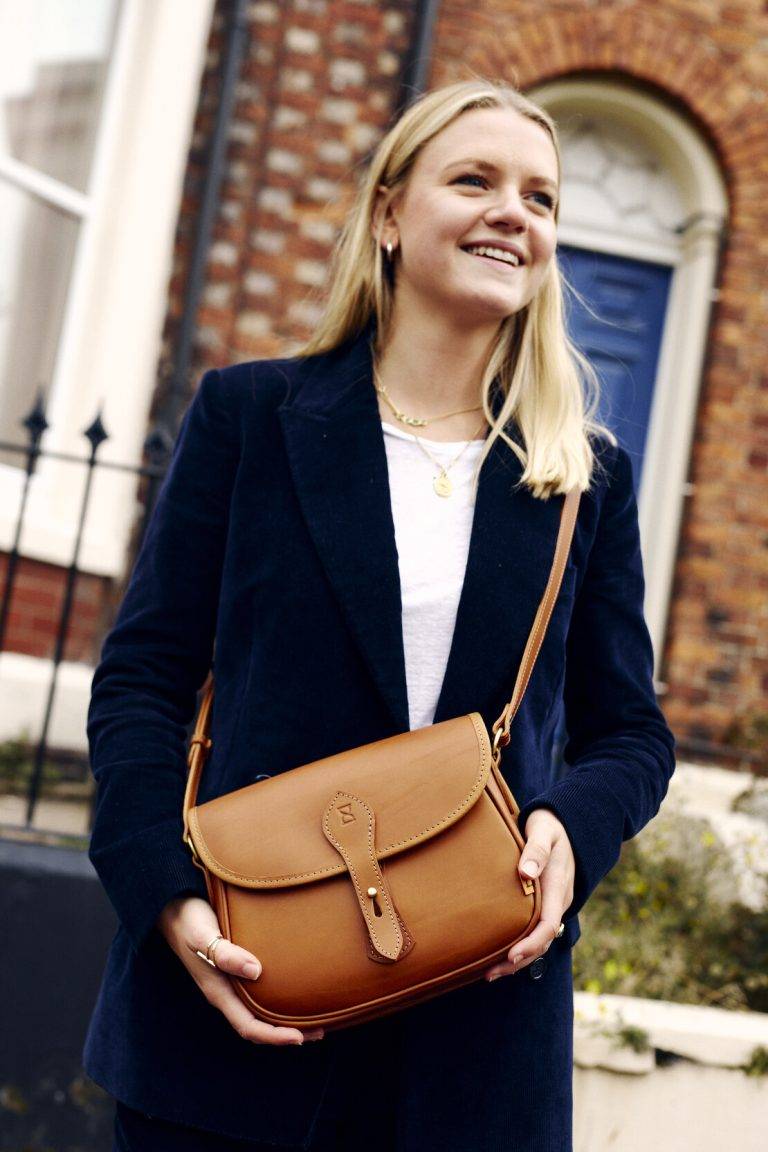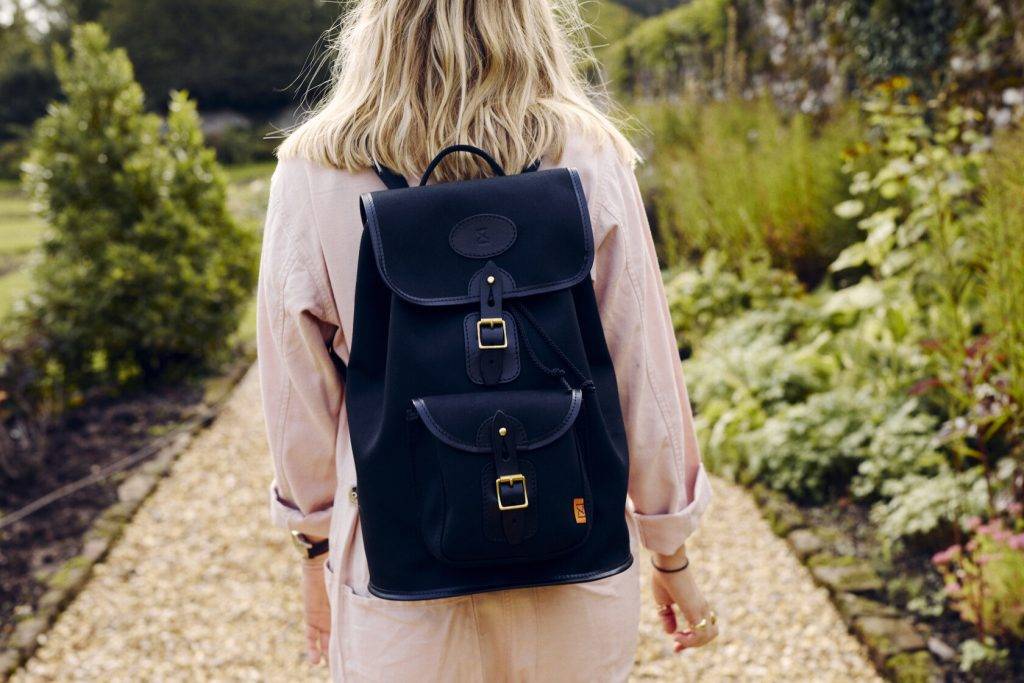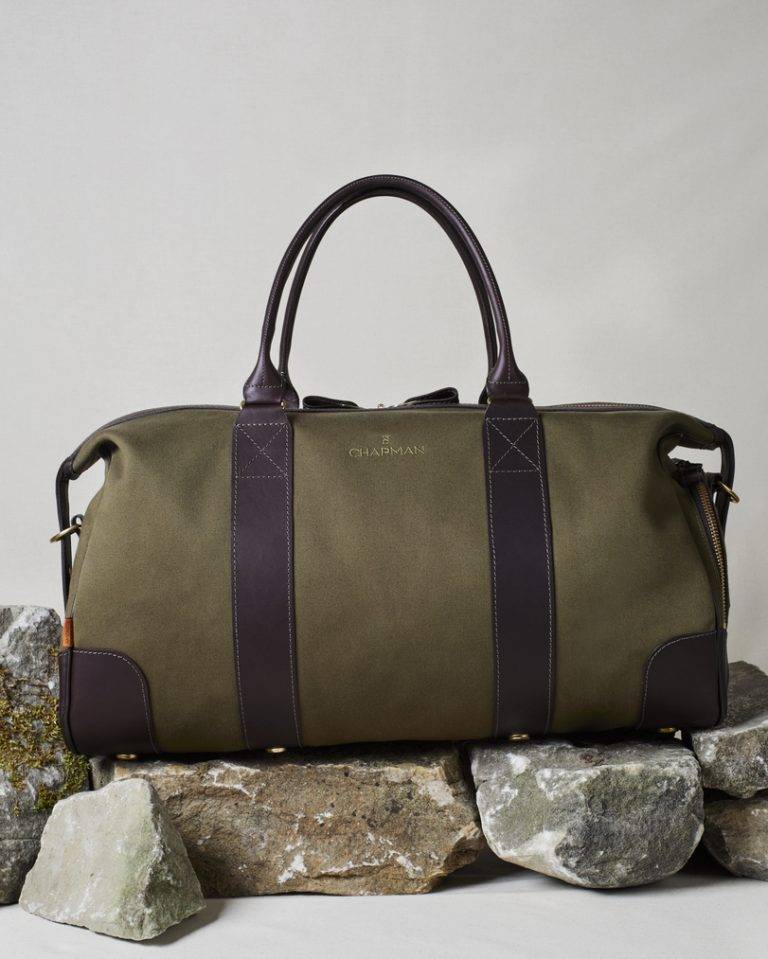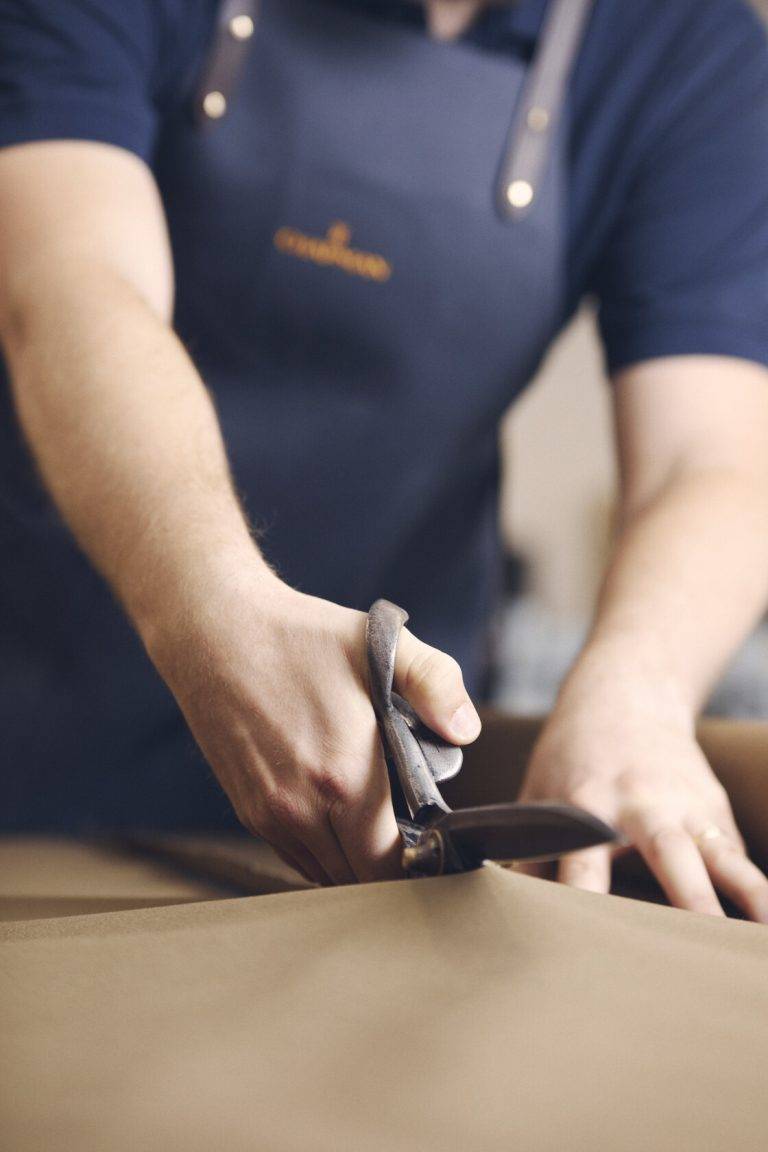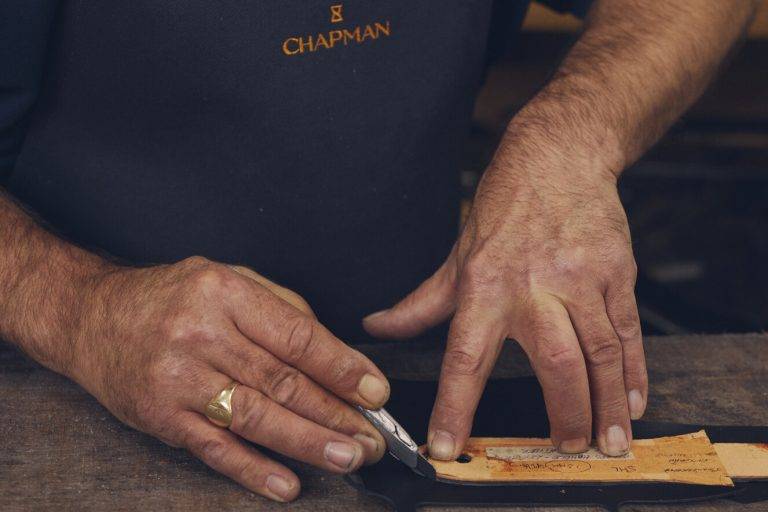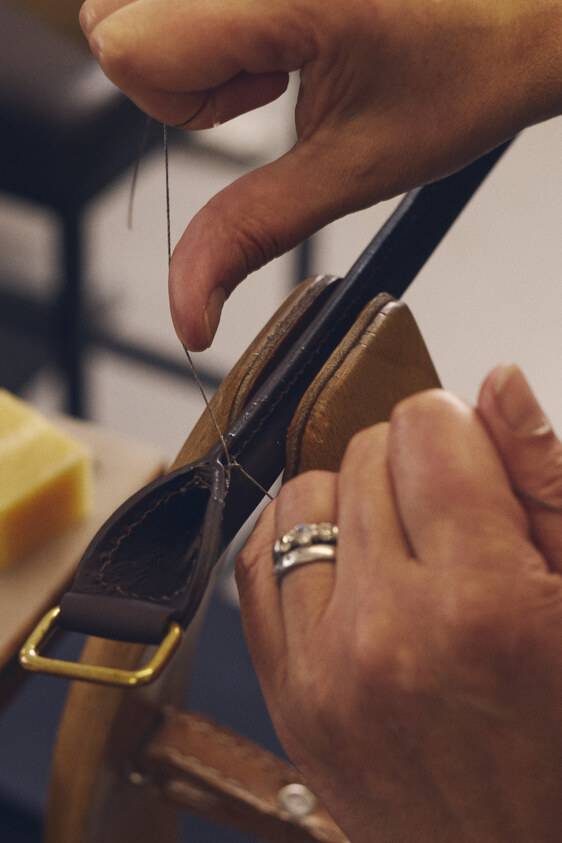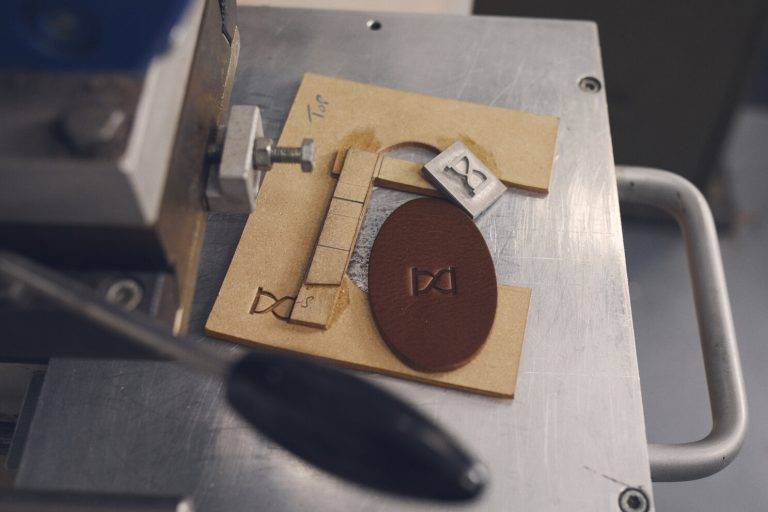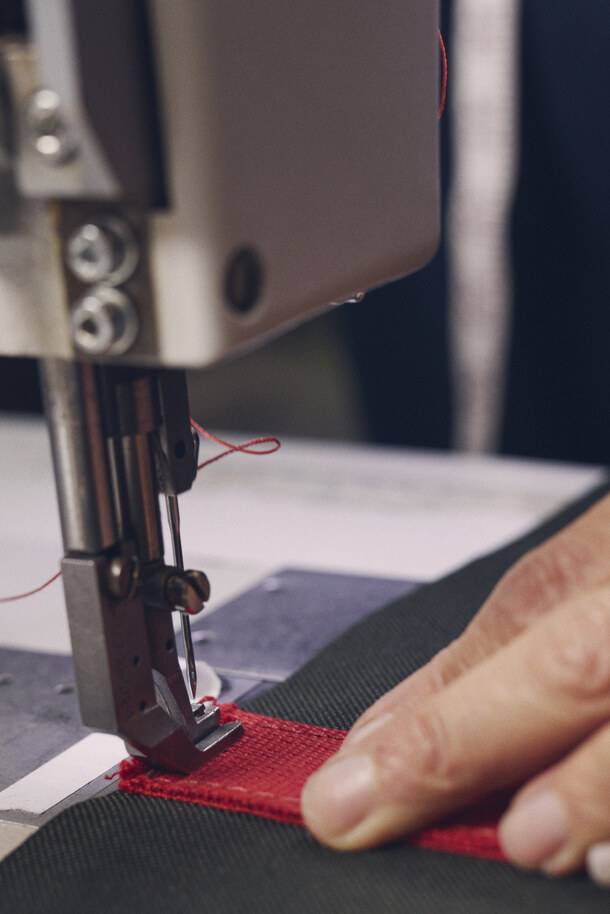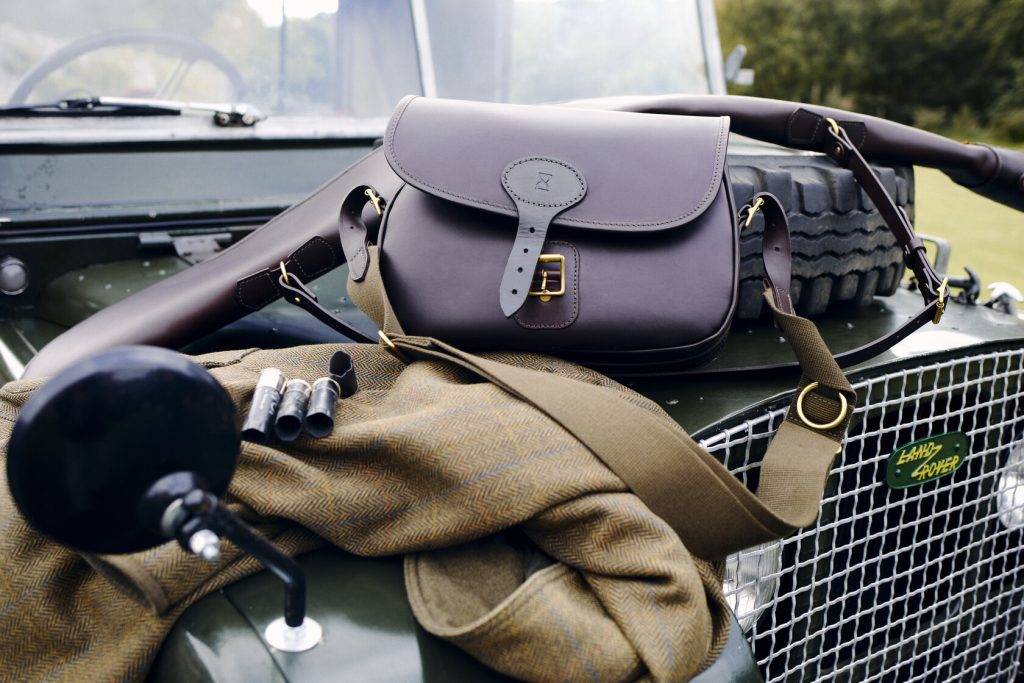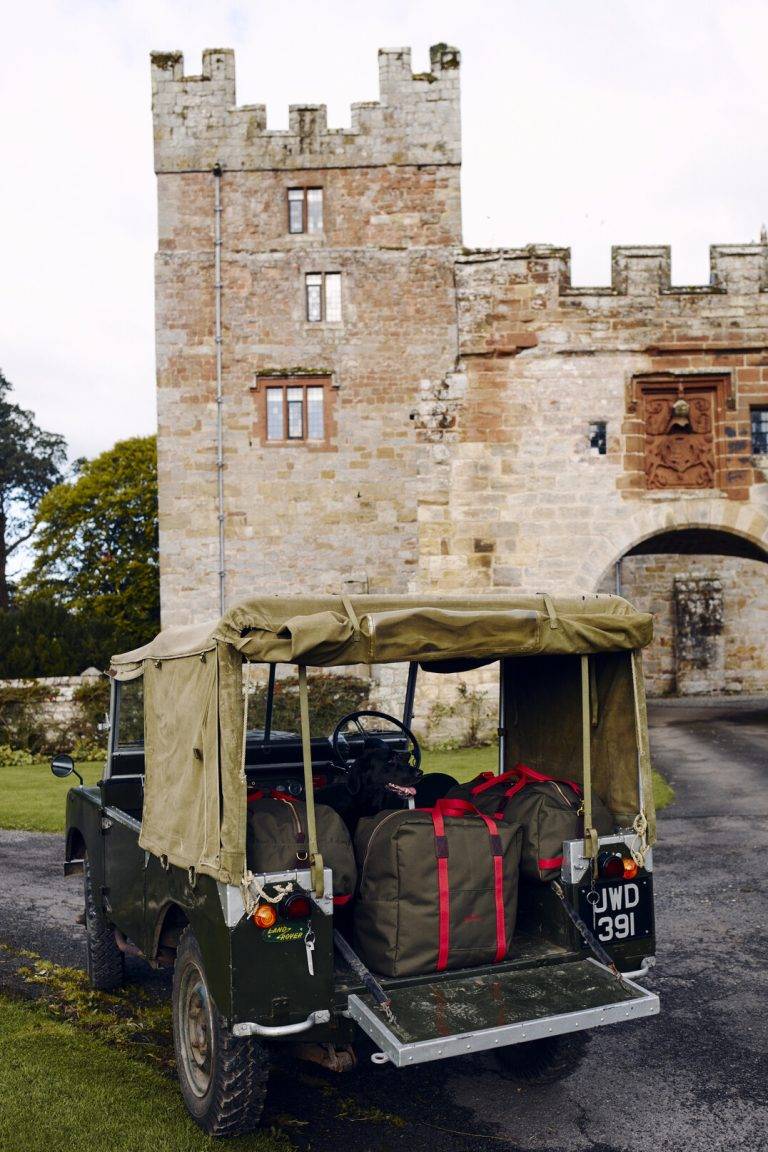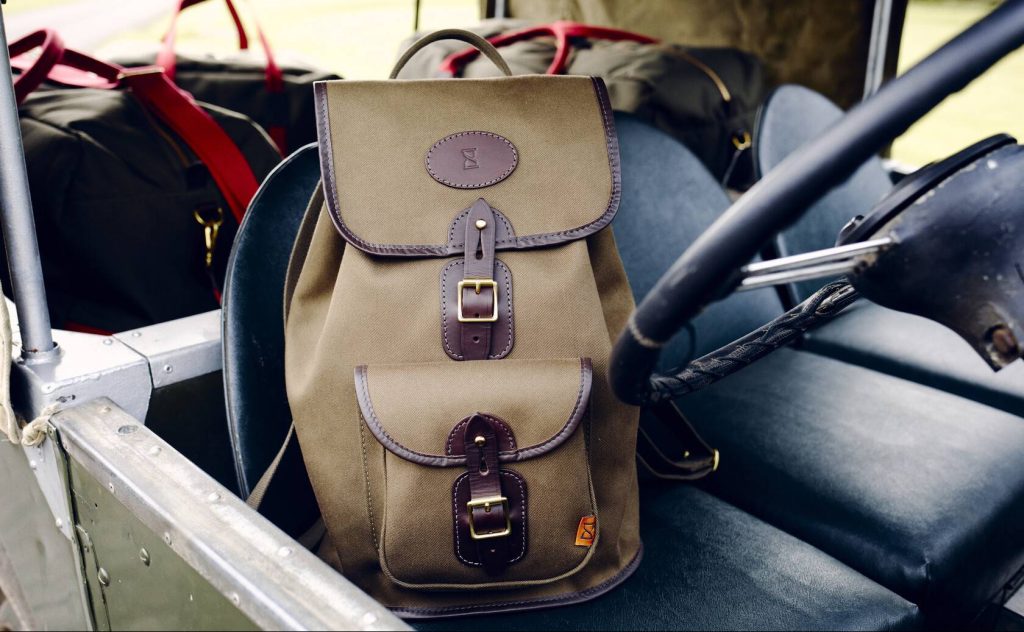Founded in 1984 by an outdoor enthusiast with a vision of creating long-lasting bags for active lifestyles, John Chapman‘s products have become an international icon of quality in the world of luggage and accessories. Committed to the highest standards of craftsmanship and design excellence, these British-made bags have become synonymous with durability, functionality, and style.
Harnessing decades of expertise in the industry, each John Chapman bag is meticulously handcrafted in their artisanal workshop in the heart of England. Utilising the finest materials sourced from reputable local suppliers, the brand prides itself on creating products that not only stand the test of time but also age gracefully, reflecting the unique journey of their owners.
The John Chapman collection boasts a diverse range of bags, catering to various lifestyles and preferences. From timeless canvas briefcases and utilitarian weekend holdalls to hardwearing outdoor backpacks and contemporary cross-body bags, every piece exudes a sense of classic elegance fused with modern sensibility.
Whether you are a seasoned traveler, a business professional, or simply someone with an eye for sophisticated accessories, John Chapman Bags are sure to capture your attention and become cherished companions in all your endeavors.
FOUR sits down with Cedric Stonex, CEO of John Chapman, to discover more about how this brand brings together tradition and innovation in perfect harmony to create bags of unmatched quality.
Can you share some details on the company’s background, including when, how and why it was founded? What are some of its core business activities?
Chapman Bags is a British company that specialises in designing and making high-quality bags and accessories. The company was founded in 1984 by John Chapman in Carlisle, Cumbria, England. Chapman, a keen fisherman and outdoor enthusiast, started the company with the aim of creating durable, functional bags for the active lifestyle. The core business activities of Chapman Bags comprise designing, manufacturing, and selling a wide range of bags, including backpacks, holdalls, briefcases, messenger bags, and accessories such as wallets and pouches. These bags are known for their exceptional craftsmanship, durability, and practical features.
How has the company evolved and grown since its inception, and what led to these transformations?
Since its inception, Chapman Bags has evolved and grown steadily. The company’s commitment to quality and craftsmanship has led to its reputation as a trusted brand in the bag industry. Chapman Bags has expanded its product range and distribution channels, reaching customers both within the UK and internationally. Chapman now employs 40 craftspeople.
How would you describe the company, its philosophy and its products to people who have never seen them?
The bags are designed to withstand the rigours of outdoor activities while maintaining a classic and timeless aesthetic. The philosophy revolves around durability, functionality, and attention to detail, ensuring that each bag is made to the highest standards. We believe that making bags that last a lifetime is the best environmental decision we can make. Removing the need to replace the bag every few years ensures we don’t contribute to the unacceptable landfill that fast fashion is responsible for.
Does the company have a signature design style or any key elements characteristic of the pieces? If so, how does this influence design decisions, and do design trends factor into this?
Our bags feature robust materials such as waxed cotton, canvas, and high-quality leather trims. These design elements are carefully considered to create bags that are both stylish and practical. Over time the canvas and leather look has become synonymous with Chapman.
Are there any items that you feel really define the John Chapman brand? If so, which products are these, and why are they particularly special?
Our most popular bags are the Chapman Weekender and the Troutbeck Fishing Bag. The Troutbeck Fishing Bag is the first bag that Chapman ever produced. When designing the Weekender, we took everything we had learned over 36 years of making bags and put it into one bag.
What do you think sets John Chapman’s products apart from others in the market?
We are makers. This means that every single stitch is made here at our Cumbrian workshop. Every leather patch, handle, and strap is cut here. We take pride in our bags. This is evident when you pick up a Chapman.
How does the company ensure quality control and maintain high standards in its products?
Every single bag is inspected inside and out by our quality controller. It does not receive its stamp until she is satisfied that it is up to our exacting standards.
Our doctrine is: choose well, choose once, choose Chapman.
Tell us more about the process of creating a piece from inception to production…
The process of creating a Chapman bag involves several stages. It starts with the design process, which includes conceptualising ideas, sketching designs, and creating prototypes. Once a design is finalised, the production process begins, involving skilled craftsmen who cut, stitch and assemble the bags by hand. The time it takes to create a bag can vary depending on the complexity of the design and the materials used.
Where do you source the materials for your products?
At Chapman, we prioritise the use of locally sourced materials whenever possible. We work closely with suppliers in the UK to obtain high-quality materials such as waxed cotton, canvas, leather and British brass. We value supporting local craftsmen and artisans.
Are there any challenges or obstacles the company anticipates in the industry, and how does it plan to overcome them?
Over the past century, we have seen high-end manufacturing decline in the UK. We have managed to stay in business by never compromising on quality, and our customers appreciate that. Our biggest challenge will be convincing people that British-made is still better. The price tag may be slightly higher, but you are paying for long-lasting quality and supporting highly skilled craftspeople in the process.
What are the key values and principles that guide John Chapman’s operations?
The key values and principles that guide Chapman Bags’ operations and decision-making include quality, craftsmanship, durability, functionality, and a commitment to sustainability. The company aims to create products that are made to last, reducing waste and promoting a more sustainable approach to consumer goods.
What is the company’s approach to customer service and satisfaction?
Chapman Bags places a strong emphasis on customer service and satisfaction. They strive to provide excellent pre- and post-purchase support to ensure that customers have a positive experience with their products. The company values feedback and considers customer input when making improvements to its designs and overall customer experience.
Are there any upcoming projects, launches, or expansions the company is working on?
We have some very exciting collaborations that are coming up, but they are secret for now.
What direction would you like to see John Chapman moving in future? What are some of its long-term goals?
We aim to continue growing as a globally recognised brand without ever compromising on quality. We want to be known for bags that never fail.
Finally, what is the overall mission and purpose of John Chapman, and how does it strive to fulfil it on a daily basis?
We start with you, with what you might need every day, for your business trip, weekend or holiday, and then create the ideal bag to suit the purpose. Our purpose is to provide our customers with bags whose style comes from its functionality, not the other way around.
To find out more about John Chapman Bags, visit the links below:
John Chapman Limited
Gallery House
Tannery Road
Harraby Green Business Park
Carlisle CA1 2SS
United Kingdom
Web: chapmanmade.uk
Tel:+44 (0) 1228 514 514
Email: retail@chapmanmade.uk
Online Store: chapmanmade.uk/collections
Instagram: @chapmanbags
Facebook: @chapmanbags

